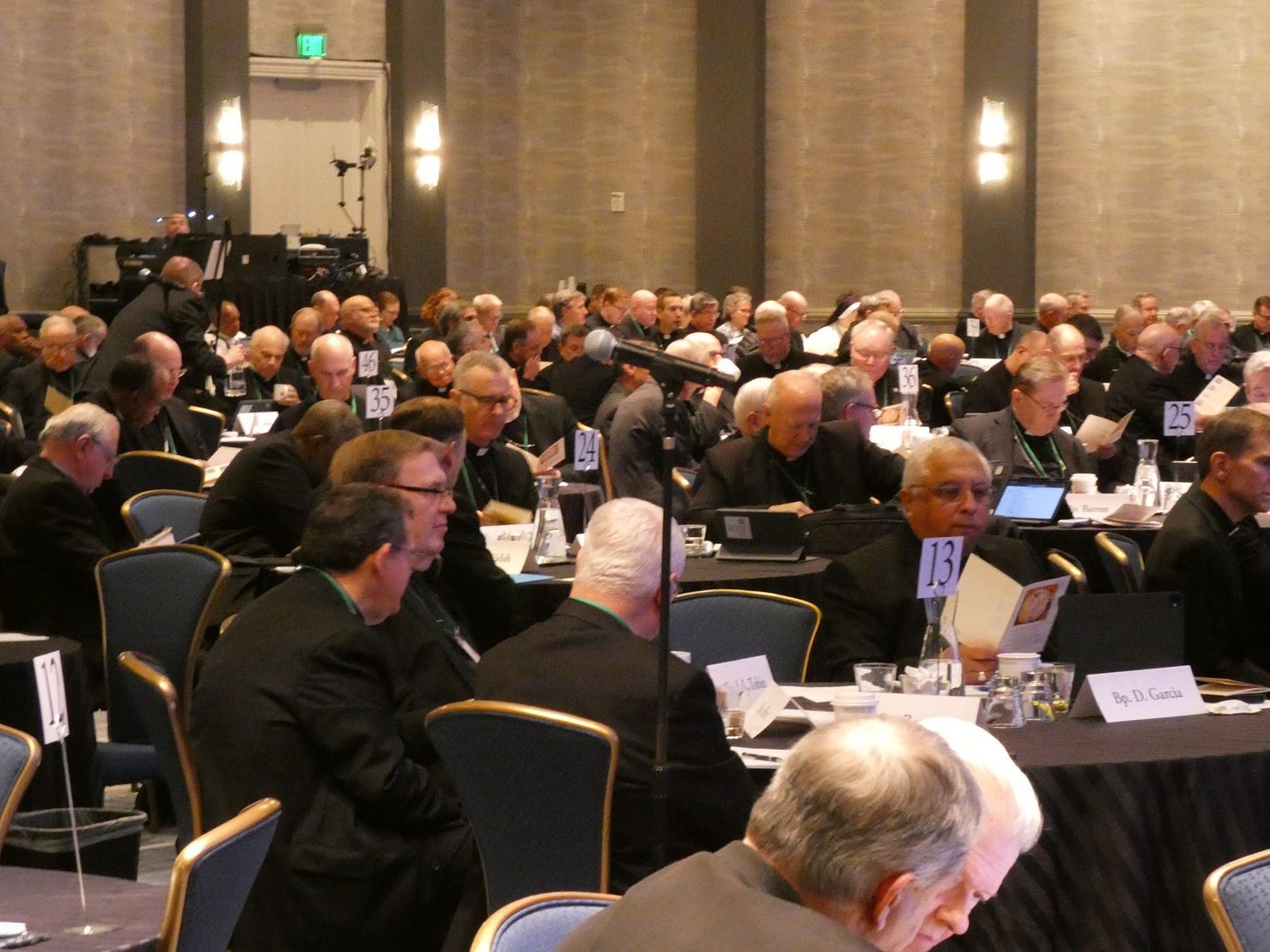Committee election results at the USCCB’s 2025 fall meeting
Description
The U.S. bishops on Wednesday elected the next leaders of six standing committees within the U.S. Conference of Catholic Bishops.
The vote took place during the bishops’ annual fall plenary assembly in Baltimore.

In addition, the bishops elected a new conference secretary, as the current secretary, Archbishop Paul Coakley of Oklahoma City, was elected the day before to become the new conference president.
While the votes are a routine part of the plenary assembly, Wednesday’s election saw some unusual drama when Archbishop Alexander Sample of Portland and Bishop Michael Sis of San Angelo tied for chairman of the religious liberty committee, with 111 votes each.
Initially, conference leadership indicated that a second round of voting would take place. However, Archbishop Salvatore Cordileone questioned this protocol.
Cordileone said that in 2018, he and Bishop John Doerfler had tied in a vote for chair of the Committee on Laity, Marriage, Family Life and Youth. Cordileone said that deadlock was resolved by his assuming of the role due to seniority.
After a pause, conference president Archbishop Timothy Broglio announced that Cordileone was correct, and Sis had won the chair due to seniority of age.
Archbishop John Wester then questioned whether the relevant seniority was to be calculated by age or by date of episcopal ordination. While Sis is older than Sample, Sample has been a bishop for longer than Sis.
Broglio said age was the determining factor.
In 2018, however, then-conference president Cardinal Daniel DiNardo and conference general secretary Monsignor Brian Bransfield said Cordileone had won his election by “seniority by episcopal ordination.”
On its website, the USCCB later described Cordileone as being elected simply “on seniority.” Cordileone is senior to Doerfler in both age and date of ordination.
In 2019, Bishop George Murry of Youngstown and Archbishop Thomas Wenski of Miami tied for the chair of the Committee for Religious Liberty. In that case, the USCCB specified that Murry won “by nature of age seniority.” Murry was also older than Wenski.
On Wednesday, several minutes after the committee chair had been awarded to Sis, he stood up to announce that because of the tie, he wanted to withdraw his name, leaving Sample to become the new head of the committee.
Sample will assume his role as chair of the religious freedom committee immediately at the conclusion of the plenary assembly, as the position is left vacant by its former head, Bishop Kevin Rhoades of Fort Wayne-South Bend. Rhoades was elected Wednesday as conference secretary, filling the vacancy left by Coakley, who has been chosen as the next conference president.
As conference secretary, Rhoades will also serve as chairman of the Committee on Priorities and Plans.
The other five newly elected committee heads will each serve one year as chairman-elect of their committee before starting a three-year term as chair.
Archbishop Jeffrey Grob of Milwaukee was elected to head the Committee on Canonical Affairs and Church Governance, narrowly beating Bishop Edward Lohse of Kalamazoo by a vote of 113-108.
Bishop Peter Smith, auxiliary of Portland, was chosen as the next leader of the Committee on Ecumenical and Interreligious Affairs over Bishop Daniel Felton of Duluth 139-83.
Bishop William Wack, CSC, of Pensacola-Tallahassee was elected as the next chair of the Committee on Evangelization and Catechesis, topping Bishop Earl Fernandes of Columbus by a vote of 116-106.
The bishops selected Archbishop Borys Gudziak of the Ukrainian Catholic Archeparchy of Philadelphia to head the Committee on International Justice and Peace. He was elected over Archbishop Edward Weisenburger of Detroit by a vote of 154-68.
Bishop Mark O’Connell, auxiliary of Boston, was picked to chair the Committee on Protection of Children and Young People. He was elected over Bishop John Dolan of Phoenix in a 116-106 vote.





